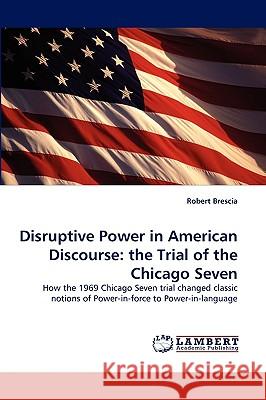Disruptive Power in American Discourse: The Trial of the Chicago Seven » książka
Disruptive Power in American Discourse: The Trial of the Chicago Seven
ISBN-13: 9783838375908 / Angielski / Miękka / 2010 / 300 str.
Historical writings about the late sixties suggest that American society at that time could be summarized by several social characteristics - conditions which in combination provided an enabling platform for a perfect "power" storm of 1968, characterized by 1) social alienation, 2) crisis- oriented ideology and discourse. 3) Sequential and proximate series of direct power confrontations and, 4) increased national and global media effect. An historical analysis of the effect of power within verbal discourse during the much publicized, turbulent events surrounding the 1968 Democratic National Convention in Chicago and the subsequent five-month trial of the Chicago Seven in 1969-1970 is presented. The historical narrative and analysis of the events and trial of the Chicago Seven supports conclusions regarding the type, amplitude, and effect of power-in-language. The studys findings pertain to the historical participants of 1968-1970 but the conclusions offer reason to believe that newer ideas concerning social power should be considered that may refine or redefine classic power notions of industrial era U.S. society.











